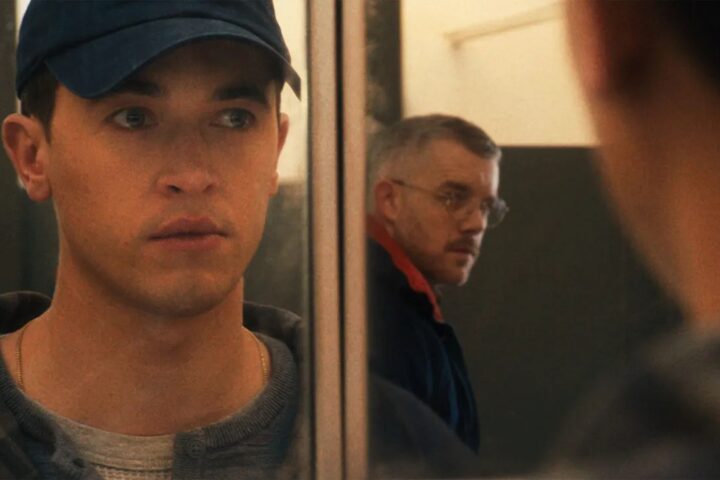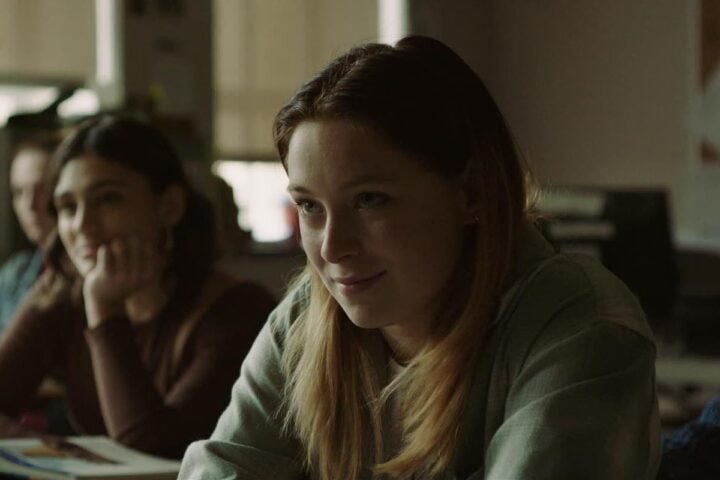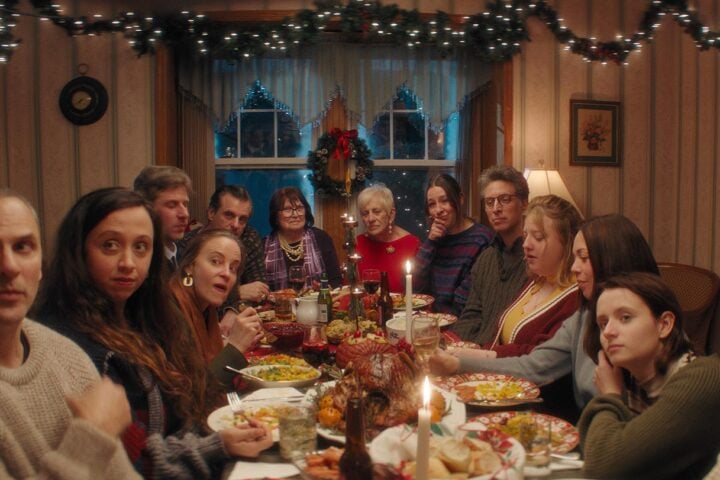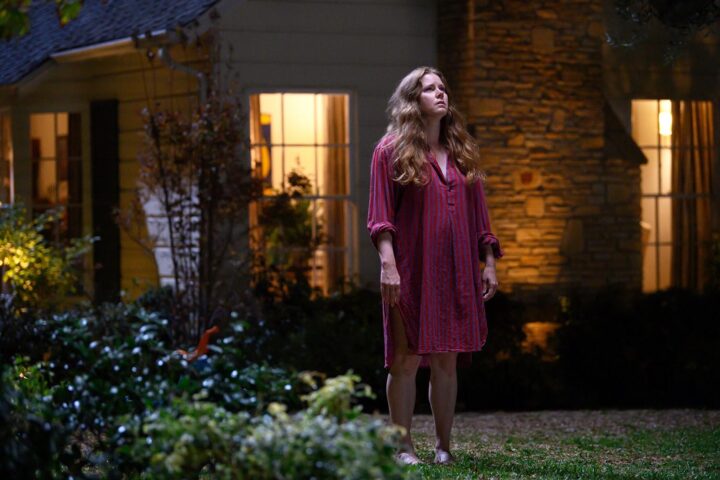In Megan Park’s My Old Ass, Elliott (Maisy Stella) celebrates her 18th birthday by wandering off to a nearby forest with her two besties, Ro (Kerrice Brooks) and Ruthie (Maddie Ziegler), to do mushrooms. Meanwhile, her deflated parents (Maria Dizzia and Alain Goulem) look sorrowfully at the surprise birthday cake they prepared for her, wondering how much they’ll see of their daughter before she heads off to college in three weeks. It’s not that Elliott doesn’t love her family, or even her annoying brothers, Max (Seth Isaac Johnson) and Spencer (Carter Trozzolo), but the queer spitfire is yearning to break free—and to have the sorts of experiences that aren’t possible in the small Canadian town in which she was raised.
Refreshingly for a film that centers on a queer person, expressing her queerness isn’t among the experiences that Elliott can’t have here, as her family and friends accept her for who she is. Her desire to escape is simply an impulse shared by so many other young people transitioning into adulthood, a would-be catalyst for self-discovery and experimentation. And on her mushroom trip, while Ruthie converses with a wild rabbit and Ro dances to music no one else can hear, she gets just that when she comes face-to-face with her 39-year-old self (Aubrey Plaza).
It’s tempting for anyone inching closer to middle age to consider what advice or warnings they might give to their younger, more naïve selves, and one gets the sense that Park wrote My Old Ass with that in mind. Here, the teen that Elliott once was is filled with unfettered excitement when she gets a taste of what life has in store for her. Not wanting to cause any irreparable changes to the course of Elliott’s life, Plaza’s character doesn’t get into too many specifics about what that future holds for her teen self, merely prodding the younger Elliott to spend a bit more time with her family and, more importantly, to avoid a young man named Chad.
This initial conversation is among the film’s highlights, thanks in large part to the effortless, charming rapport between Stella and Plaza, but also because the discussion is a two-way street, with both Elliotts’ curiosity and enthusiasm on full display during this most unusual encounter. That, once the drugs wear off, Plaza only appears on screen one more time, and not until late in My Old Ass, is a bit of letdown. But even in the duo’s various phone calls—don’t bother questioning the sci-fi nuts and bolts of the setup—their chemistry remains palpable.
Elliott inevitably runs into the notorious Chad (Percy Hynes White), a charming summer worker on her parents’ cranberry farm. First keeping her distance from him, Elliott looks for red flags in Chad’s behavior, only to gradually get sucked into his orbit. Having always thought of herself as a lesbian, Elliott is also now forced to grapple anew with her sexual identity at the same time as her burgeoning desire for Chad brushes up against the strong warnings against him.
The film’s supporting characters are all memorable, which makes it somewhat regrettable that most of them are pushed to the sidelines for long stretches as Elliott begins to fall for Chad. Ro’s bond with Elliott is remarkable for its genuineness, yet their friendship still feels a tad underbaked, while Elliott’s mom could have used a bit more fleshing out herself, especially to make her touching anecdote about Elliott as a baby land more of an emotional punch.
Despite such faults, the world of My Old Ass retains a lived-in quality, in large part due to the shrewd, sensitive way in which it treats the emotional struggles of its teenage characters, with its finest moments defined by tender grace notes that round out the emotional journey of its protagonist. Much of the film’s authenticity is due to its uniformly terrific cast, especially Stella’s slyly humorous and low-key yet deeply felt performance, which helps My Old Ass achieve a certain degree of poignancy without stumbling into gooey sentimentality.
Since 2001, we've brought you uncompromising, candid takes on the world of film, music, television, video games, theater, and more. Independently owned and operated publications like Slant have been hit hard in recent years, but we’re committed to keeping our content free and accessible—meaning no paywalls or fees.
If you like what we do, please consider subscribing to our Patreon or making a donation.






